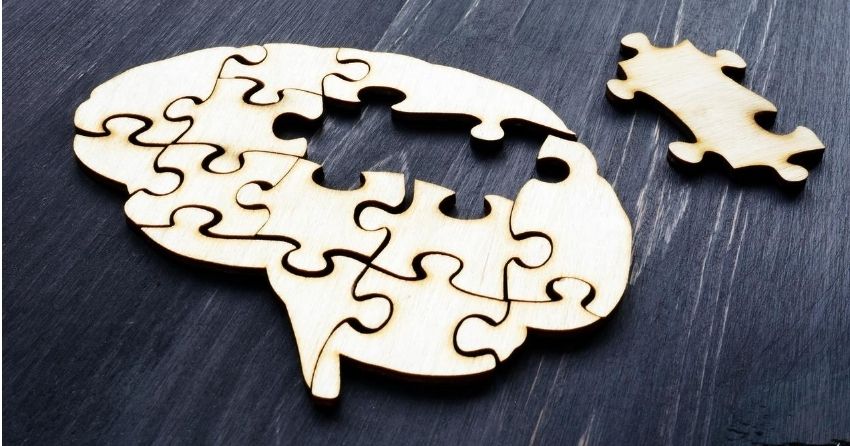How the Herb Ashwagandha Supports Brain Health

Research from Konar and colleagues showed that ashwagandha can stimulate an increase in growth markers of dendrites — the short branched extensions of nerve cells along which impulses received from other cells are transmitted. In a mouse model of memory loss, ashwagandha reversed the loss of dendrites and associated growth markers in the mouse cerebral cortex and hippocampus, the brain areas associated with cognition and memory, respectively. This study provides mechanistic evidence for the clinical application of ashwagandha in cognitive disorders. “Our work is significant in that it establishes a foundation for formal therapeutic value and clinical application,” stated the authors.
The herbal origins of modern medicine
Multiple modern medications have ‘herbal’ origins, such as aspirin. In recent years, herbal remedies from non-’Western’ traditional medicine have gained notice as viable sources for safe and effective drugs. Among these substances, ashwagandha has received recognition for potentially possessing qualities that improve cognition as well as protective and regenerative activity in the nervous system.
But inadequate information about mechanisms of action is a stumbling block for regulatory approval of the application of many ‘herbal’ substances, including ashwagandha, in clinical settings. For these reasons, Konar and colleagues sought to bring to light specific targets of ashwagandha that induce changes in the activity of genes and cells related to the protection and regeneration of the nervous system.

Ashwagandha ameliorates acetylcholine receptor signaling
Impairment in dendrite growth and arborization — when neurons form new dendritic trees and branches to create new connections — are cardinal features of memory loss. So, the researchers treated neurons taken from mouse brains and mice with ashwagandha after exposing them to scopolamine — an agent that damages nerve cell projections and can cause memory loss. What they found was that ashwagandha treatment was able to reverse some of the adverse effects of scopolamine.
Associated molecular markers for dendrite growth and arborization include KLK8 and MAP2c, which are pivotal for these processes. MAP2c is found in growing dendrites and axons, in certain populations of neurons, and is also active in neurons that can regenerate in the adult central nervous system. In this study, ashwagandha could regenerate scopolamine-damaged nerve cell projections, or neurites, and enhance existing neuronal networks by upregulating the neurite growth markers KLK8 and MAP2.
Scopolamine is an antagonist — a type of molecule that blocks or dampens a biological response — for muscarinic receptors, particularly muscarinic acetylcholine receptors. These receptors mediate a signaling pathway critical for plasticity and memory. So, Konar and colleagues hypothesized that ashwagandha might target the same receptors to exert neuroprotective and neurotrophic activity.
As the researchers expected, a muscarinic receptor antagonist called dicyclomine completely abolished the ability of ashwagandha to induce neurite growth and expression of marker proteins. On the other hand, pilocarpine, a muscarinic agonist, simulated the cognition improving action of ashwagandha in the recovery of scopolamine-induced damage to the nervous system. Pilocarpine also led to neurite enhancement.

Matchmaker, matchmaker, make me a medicinal match for memory loss
Most on-the-market treatment approaches for cognitive loss disorders attempt to reduce deficiencies in cholinergic receptor-based transmission through what’s called cholinesterase inhibitors. The M1 muscarinic acetylcholine receptor is also under investigation as a drug target for cognitive loss disorders. “In this regard, our work provides a mechanistic insight towards the therapeutic application of M1 stimulants, such as [ashwagandha], in neurodegeneration and other cognitive disorders, though detailed pathway analysis is still necessary,” conclude the authors.
In a broader context, memory loss is one of the most tragic symptoms of cognitive disorders. Treatments of causation are, certainly, to be sought after. But the field has been moving to a consensus that any cause-based treatments for cognitive loss disorders would have to be administered early in life because it can be detected 20 to 30 years before symptoms present in an individual. Some preventative suggestions emphasize improvements in diet or exercise. Others have investigated the potential benefits of dietary supplementation. The use of traditional ‘medicinal’ herbs like ashwagandha would fall into the last category.
It may be practical to combine palliative — pain-relieving — and supportive medication with the treatment of the cause. That is, one would see new-generation drugs as partners to symptomatic relief. Supportive care would prevent further deterioration of a patient with a cognitive loss disorder, while the enzymatic inhibitors would facilitate the slower process of ‘cleanup’ of unwanted aggregates and subsequent regeneration and rearborization of neurons. If these supportive substances were not just protective of the nervous system but also promoted its growth, the combination would have a ‘best chances’ outcome of not only permanently halting disease but potentially reversing it. Konar and colleagues say that their studies suggest that ashwagandha may offer such a unique possibility.
References:
Konar A, Gupta R, Shukla RK, et al. M1 muscarinic receptor is a key target of neuroprotection, neuroregeneration and memory recovery by i-Extract from Withania somnifera. Sci Rep. 2019;9(1):13990. Published 2019 Sep 30. doi:10.1038/s41598-019-48238-6





